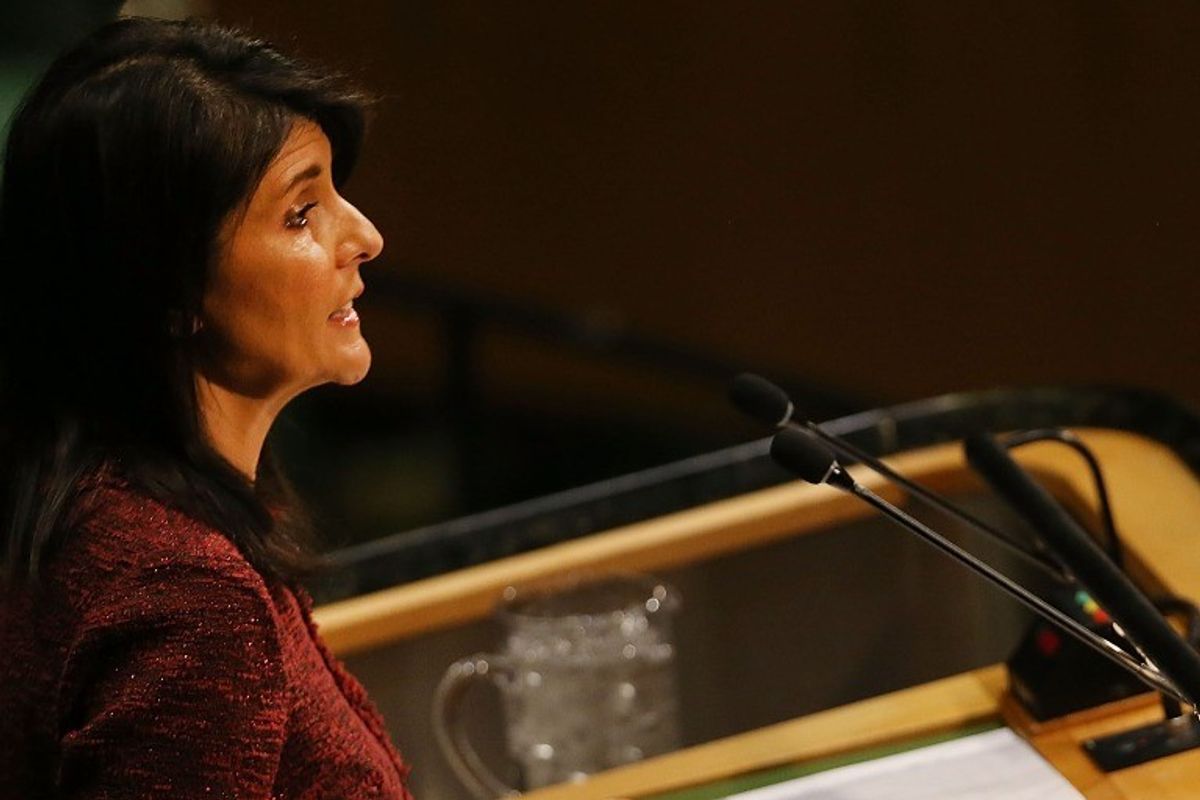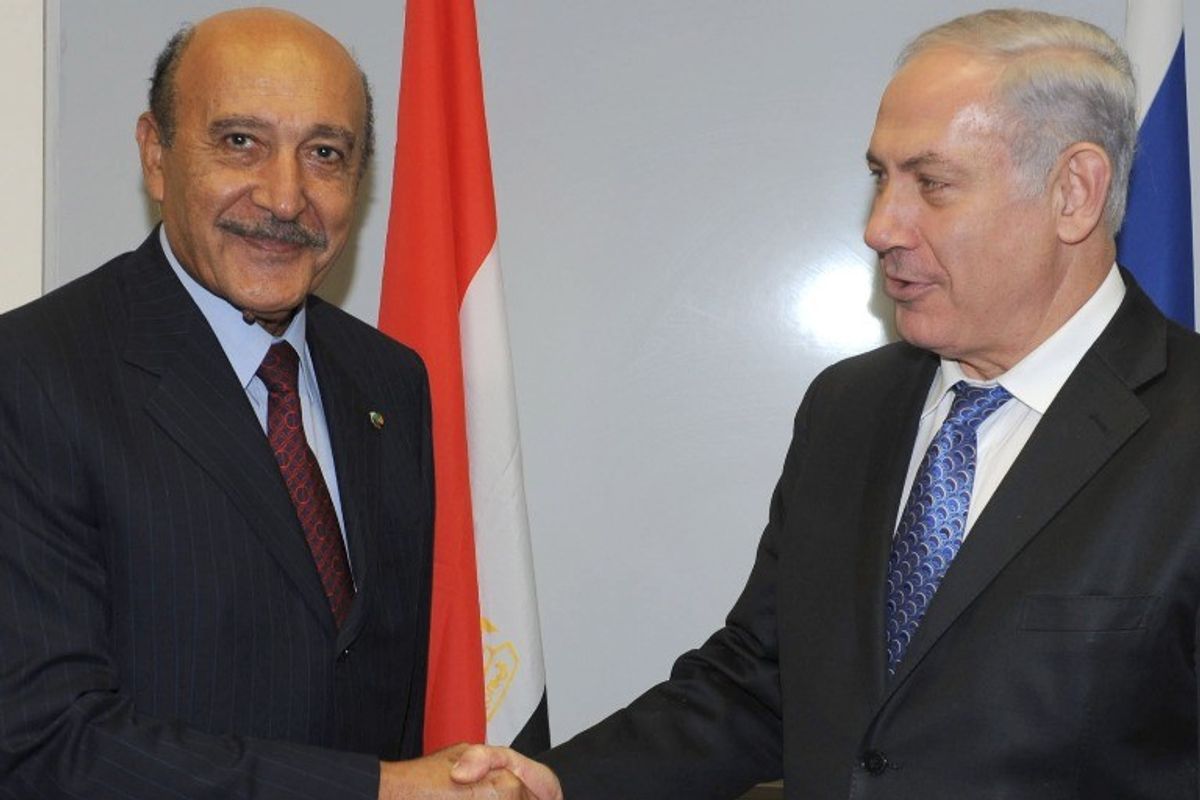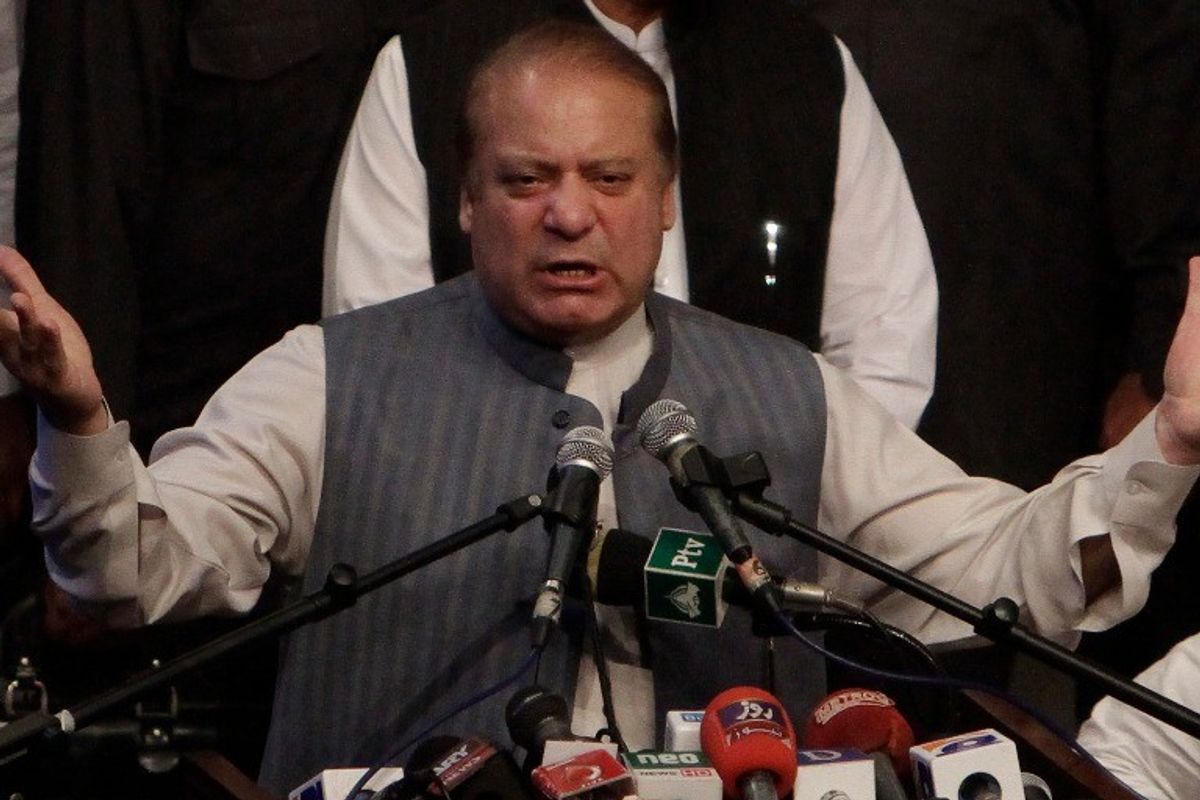The U.S. is withholding millions of dollars in military and economic aid to Egypt, citing human rights concerns. “The funds that would normally go to Egypt … will be held in reserve until we can see progress on democracy,” said State Department spokesperson Heather Nauert on Wednesday.
The U.S. is holding back three different packages: $195 million in aid from the foreign military financing (FMF) mechanism that will be frozen until Egypt meets certain conditions on bettering democracy and human rights; another $65.7 million in military aid that will be taken away from Egypt altogether and distributed to other countries instead; and $30 million in economic aid.
The withholding of economic aid is in response to a new non-governmental organization (NGO) law that Egypt just passed which prohibits NGOs from conducting activities that “harm national security, public order, public morality or public health.” It also tightly controls their funding and gives the Egyptian government authority to monitor their activities, in addition to introducing jail sentences for noncompliance.
U.S. concerns over human rights violations in Egypt are nothing new. Since the 2011 Egyptian revolution that overthrew then President Hosni Mubarak, the U.S. has placed even greater emphasis on human rights. Under the Obama Administration, the U.S. suspended a significant amount of assistance to Egypt in 2013, in response to then, democratically elected President Mohamed Morsi’s ouster that year – although aid was reinstated in 2015 due to U.S. national security concerns.
Congress has made certain aid conditional on Egypt making progress toward a better human rights record and democratic governance. For example, the $65.7 million in military aid that the U.S. is taking away from Egypt “has been withheld since 2014 due to congressional concerns regarding the Egyptian military’s use of American equipment for operations in the Sinai that involved human rights violations,” Eric Trager, a fellow at The Washington Institute for Near East Policy, told The Cipher Brief.
Similarly, the frozen $195 million in aid represents a portion of the annual U.S. military aid to Egypt – 15 percent of $1.3 billion annually – that Congress has made conditional on Egypt making progress toward democracy and human rights.
Trager said that the Trump Administration is broadening those conditions even further. “It has set new – and somewhat ambiguous – conditions for Egypt to spend these funds,” he said, which include bettering the human rights record, increasing counterterrorism efforts, and ending any kind of cooperation with North Korea.
Concerns over Egypt’s ties with North Korea abound. The two have had close relations since the 1970s, when North Korean pilots trained Egyptian fighter pilots before the 1973 Egypt-Israel war. In 2015, a United Nations panel said North Korea was using Egypt’s Port Said on the Mediterranean Sea as a front for companies and shipping agents involved in weapons smuggling.
On counterterrorism, the U.S. and Egypt have had different views on how to best deal with the problem. “The United States has been emphasizing to the Egyptians that they need an actual counter-insurgency strategy as opposed to the scorched earth approach they have been using. The Egyptians have thus far been unwilling to take this advice,” Steven Cook, a senior fellow at the Council on Foreign Relations, told The Cipher Brief in an interview last June.
But according to Trager, the problem with the Trump Administration’s tactic of imposing new conditions on Egypt to receive the full amount of U.S. military aid “is that effective conditionality requires clear conditions, and the Administration has thus far offered Egypt a broad list of complaints.”
Egypt, for its part, is not happy with the new and ambiguous conditions.
“Egypt sees this measure as reflecting poor judgment of the strategic relationship that ties the two countries over long decades and as adopting a view that lacks an accurate understanding of the importance of supporting Egypt's stability,” the Egyptian foreign ministry said in a statement on Wednesday morning – at the same time that Trump adviser and son-in-law Jared Kushner was in Egypt for a meeting with Egyptian President Abdel Fattah el-Sisi.
The Trump Administration’s move was a slap in the face to Sisi, who had a positive meeting with President Donald Trump in the Oval Office in April. In a joint press conference, Trump said, “I just want to let everybody know, in case there was any doubt, that we are very much behind President el-Sisi. He’s done a fantastic job in a very difficult situation. We are very much behind Egypt and the people of Egypt. The United States has, believe me, backing, and we have strong backing.”
So this sort of about-face by the Trump Administration “will damage President Trump’s credibility with President Sisi,” said Trager.
The implications of what such “damage” could mean for future U.S.-Egypt cooperation are unclear and may be minimal if Egypt responds sufficiently to the Trump Administration’s conditions. It will then receive the $195 million in military aid.
But there are core U.S. interests in the region that could be harmed. For example, the U.S. has preferred access through the Suez Canal and overflight rights. And Egypt and the U.S. work together closely on fighting terrorism, especially in the fight against ISIS in the Sinai.
Moreover, this “will likely convince the Egyptian government that it needs to continue broadening its defense relationships, since U.S. aid isn’t a sure thing even under a broadly sympathetic American president,” noted Trager. That could mean turning to a U.S. adversary, like Russia, which Egypt did between 2013 and 2015 when the Obama Administration suspended some aid.
Right after the U.S. suspension of funding in 2013, a high-level Russian delegation traveled to Egypt for talks about an arms deal worth up to $2 billion. In September 2014, Russia agreed to a $3.5 billion arms deal with Egypt.
But, “so far neither Russia nor any other country has offered Egypt military aid, let alone military aid that is comparable to what Washington offers,” said Trager, adding, “And so long as that remains the case, Egypt won’t be able to pivot away from the U.S.”
Kaitlin Lavinder is a reporter at The Cipher Brief. Follow her on Twitter @KaitLavinder.












